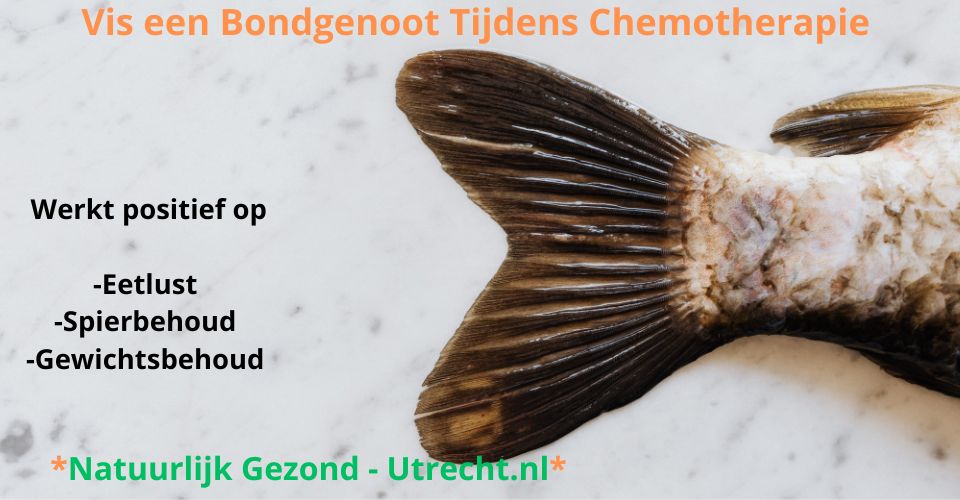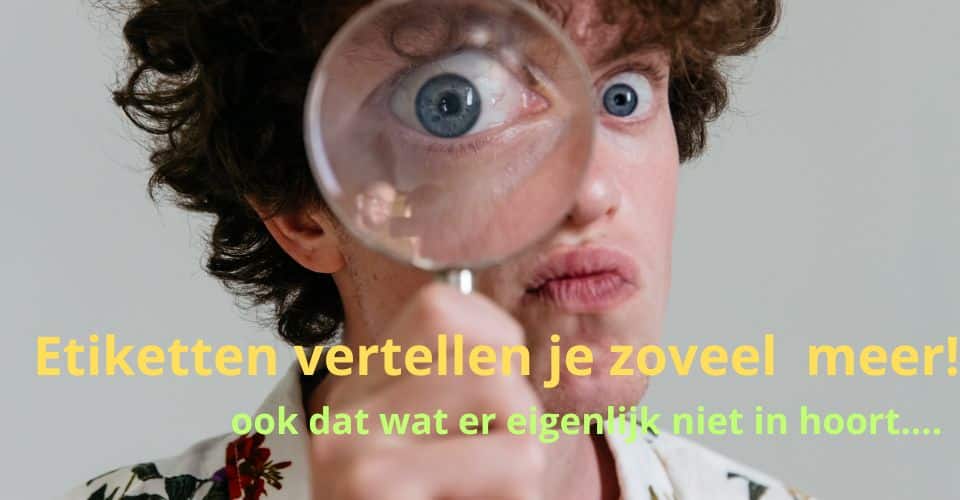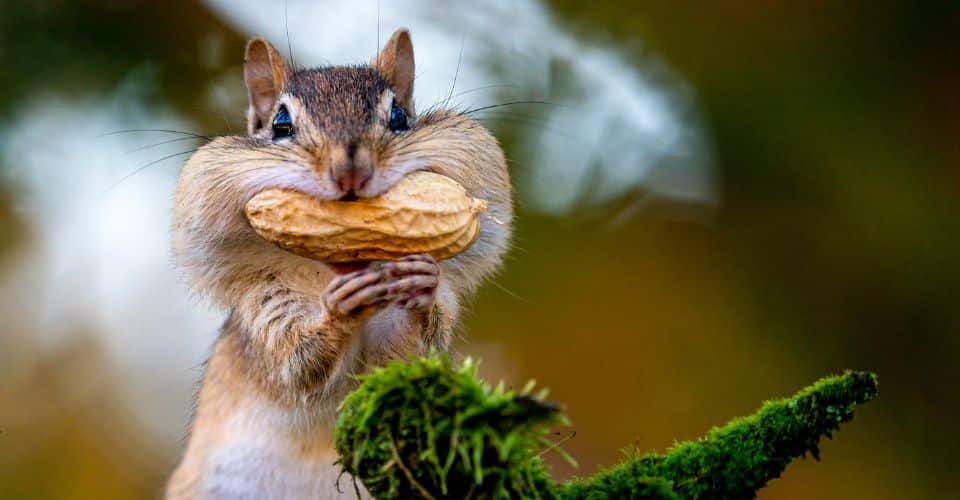“Visolie tijdens chemotherapie: een waardevolle aanvulling voor behandeling”
In 2015 zorgde een onderzoek bij knaagdieren voor opschudding toen het aanraadde om visolie te vermijden tijdens chemotherapie. Dit advies leidde tot veel verwarring en frustratie in de oncologische gemeenschap. Maar nu, zes jaar later, is het duidelijk dat deze aanname niet klopt. Het gebruik van visolie tijdens chemotherapie blijkt juist een uitstekend idee te zijn.
Het oorspronkelijke advies in 2011 en de herhaling in 2015, gebaseerd op muizenexperimenten waarbij tumoren werden behandeld met visolie, leken aannemelijk. Maar waarom zouden we ons alleen op dieronderzoek baseren als er honderden publicaties zijn over visolie en kanker bij mensen? Bovendien is er geen bewijs uit landen waar veel vis wordt gegeten dat visolie de effectiviteit van chemotherapie vermindert.
Een groeiend aantal onderzoekers ondersteunt juist het gebruik van visolie tijdens chemotherapie. Visolie blijkt beschermend te werken tegen ontstekingen veroorzaakt door chemotherapie, waardoor ongewenst gewichtsverlies en spiermassaafname worden tegengegaan. Studies tonen aan dat visolie de skeletspieren beschermt, minder bijwerkingen veroorzaakt en zelfs de tumorgroei kan vertragen.
“Het gebruik van visolie wordt tegenwoordig juist aangemoedigd”
Recent onderzoek in 2021 adviseert zelfs het suppleren van visolie aan mensen met gevorderde kanker die chemotherapie ondergaan om de eetlust te stabiliseren of te verbeteren. Het bevordert niet alleen de eetlust, maar het heeft ook positieve effecten op spiermassa en lichaamsgewicht.
De European Society of Clinical Nutrition and Metabolism (ESPEN) ondersteunt nu ook het gebruik van visolie tijdens chemotherapie. Het is dus hoog tijd dat het eerder gegeven advies herzien wordt. Dit nieuwe inzicht kan een aanzienlijk verschil maken voor patiënten die al die tijd mogelijk de voordelen van visolie tijdens hun behandeling hebben gemist.
Twijfel je of je wel of geen visolie moet gaan gebruiken als je in een kanker-behandeltraject zit? Vraag het je oncoloog.
Zelf heb ik gemerkt gezien dat visolie, meestal in combinatie met homeopathie en andere supplementen, een goede ondersteuning biedt tijdens een chemo behandeling. Een dergelijke behandeling grijpt niet alleen aan op de ‘foute cellen’, maar zorgen ervoor dat ook dat deel van je lichaam dat gezond is, vaak flink wordt aangetast. En een aangetast lichaam heeft steeds meer moeite om te herstellen. Dus onderhoud je lichaam goed zodat je na een behandeling weer energie hebt om verder te gaan.Petra Voorn
Natuurlijk Gezond-Utrecht
1. Daenen LG, Cirkel GA, Houthuijzen JM, Gerrits J, Oosterom I, Roodhart JM, van Tinteren H, Ishihara K, Huitema AD, Verhoeven-Duif NM, Voest EE. Increased Plasma Levels of Chemoresistance-Inducing Fatty Acid 16:4(n-3) After Consumption of Fish and Fish Oil. JAMA Oncol. 2015 Jun;1(3):350-8. doi: 10.1001/jamaoncol.2015.0388. PMID: 26181186.
https://pubmed.ncbi.nlm.nih.gov/26181186/
2. Roodhart JM, Daenen LG, Stigter EC, Prins HJ, Gerrits J, Houthuijzen JM, Gerritsen MG, Schipper HS, Backer MJ, van Amersfoort M, Vermaat JS, Moerer P, Ishihara K, Kalkhoven E, Beijnen JH, Derksen PW, Medema RH, Martens AC, Brenkman AB, Voest EE. Mesenchymal stem cells induce resistance to chemotherapy through the release of platinum-induced fatty acids. Cancer Cell. 2011 Sep 13;20(3):370-83. doi: 10.1016/j.ccr.2011.08.010. PMID: 21907927.
https://pubmed.ncbi.nlm.nih.gov/21907927/
3. ScienceDaily. “Fish oil reduces effectiveness of chemotherapy”. University Medical Center Utrecht. ScienceDaily, 12 September 2011. Accessed 5 August 2015.
https://www.sciencedaily.com/releases/2011/09/110912143257.htm
4. Voormolen S. Vette vis en chemotherapie gaan niet goed samen. NRC vrijdag 3 april 2015. Accessed 8 April 2015.
https://www.nrc.nl/nieuws/2015/04/03/vette-vis-en-chemotherapie-gaan-niet-goed-samen-1483724-a76532
5. Steenhorst R. Visolie remt effect chemo bij kanker_Telegraaf zaterdag 4 april 2015. Accessed 8 April 2015.
https://www.telegraaf.nl/nieuws/836142/visolie-remt-effect-chemo-bij-kanker
6. Advies van de Landelijke Werkgroep Diëtisten Oncologie (LWDO). Visolie en chemotherapie? Accessed 5 August 2021.
https://eoi.nl/download/file:2011-10-visolie-en-chemotherapie-advies-lwdo/name:pasdfioasdfioasdf.htm
7. Murphy RA, Clandinin MT, Chu QS, Arends J, Mazurak VC. A fishy conclusion regarding n-3 fatty acid supplementation in cancer patients. Clin Nutr. 2013 Jun;32(3):466-7. doi: 10.1016/j.clnu.2012.05.013. Epub 2012 Jun 15. PMID: 22705090.
https://pubmed.ncbi.nlm.nih.gov/22705090/
8. Mazurak VC, Calder PC, van der Meij BS. Let Them Eat Fish. JAMA Oncol. 2015 Sep;1(6):840. doi: 10.1001/jamaoncol.2015.2053. PMID: 26355863.
https://pubmed.ncbi.nlm.nih.gov/26355863/
9. Baracos V. Let Them Eat Fish. JAMA Oncol. 2015 Sep;1(6):840-1. doi: 10.1001/jamaoncol.2015.2059. PMID: 26355864.
https://pubmed.ncbi.nlm.nih.gov/26355864/
10. Daenen LG, Voest EE. Let Them Eat Fish–Reply. JAMA Oncol. 2015 Sep;1(6):841. doi: 10.1001/jamaoncol.2015.2056. PMID: 26355866.
https://pubmed.ncbi.nlm.nih.gov/26355866/
11. Bougnoux P, Hajjaji N, Ferrasson MN, Giraudeau B, Couet C, Le Floch O. Improving outcome of chemotherapy of metastatic breast cancer by docosahexaenoic acid: a phase II trial. Br J Cancer. 2009 Dec 15;101(12):1978-85. doi: 10.1038/sj.bjc.6605441. Epub 2009 Nov 17. PMID: 19920822; PMCID: PMC2779856.
https://pubmed.ncbi.nlm.nih.gov/19920822/
12. Murphy RA, Yeung E, Mazurak VC, Mourtzakis M. Influence of eicosapentaenoic acid supplementation on lean body mass in cancer cachexia. Br J Cancer. 2011 Nov 8;105(10):1469-73. doi: 10.1038/bjc.2011.391. Epub 2011 Oct 4. PMID: 21970879; PMCID: PMC3242518.
https://pubmed.ncbi.nlm.nih.gov/21970879/
13. Vaughan VC, Hassing MR, Lewandowski PA. Marine polyunsaturated fatty acids and cancer therapy. Br J Cancer. 2013 Feb 19;108(3):486-92. doi: 10.1038/bjc.2012.586. Epub 2013 Jan 8. PMID: 23299528; PMCID: PMC3593545.
https://pubmed.ncbi.nlm.nih.gov/23299528/
14. Mansara P, Ketkar M, Deshpande R, Chaudhary A, Shinde K, Kaul-Ghanekar R. Improved antioxidant status by omega-3 fatty acid supplementation in breast cancer patients undergoing chemotherapy: a case series. J Med Case Rep. 2015 Jun 24;9:148. doi: 10.1186/s13256-015-0619-3. PMID: 26104023; PMCID: PMC4486087.
https://pubmed.ncbi.nlm.nih.gov/26104023/
15. Serini S, Ottes Vasconcelos R, Fasano E, Calviello G. How plausible is the use of dietary n-3 PUFA in the adjuvant therapy of cancer? Nutr Res Rev. 2016 Jun;29(1):102-25. doi: 10.1017/S0954422416000044. Epub 2016 May 13. PMID: 27172872.
https://pubmed.ncbi.nlm.nih.gov/27172872/
16. Gulbake A, Jain A, Jain A, Jain A, Jain SK. Insight to drug delivery aspects for colorectal cancer. World J Gastroenterol. 2016 Jan 14;22(2):582-99. doi: 10.3748/wjg.v22.i2.582. PMID: 26811609; PMCID: PMC4716061.
https://pubmed.ncbi.nlm.nih.gov/26811609/
17. Camargo Cde Q, Mocellin MC, Pastore Silva Jde A, Fabre ME, Nunes EA, Trindade EB. Fish oil supplementation during chemotherapy increases posterior time to tumor progression in colorectal cancer. Nutr Cancer. 2016;68(1):70-6. doi: 10.1080/01635581.2016.1115097. Epub 2015 Dec 23. PMID: 26700096.
https://pubmed.ncbi.nlm.nih.gov/26700096/
18. Gorjao R, Dos Santos CMM, Serdan TDA, Diniz VLS, Alba-Loureiro TC, Cury-Boaventura MF, Hatanaka E, Levada-Pires AC, Sato FT, Pithon-Curi TC, Fernandes LC, Curi R, Hirabara SM. New insights on the regulation of cancer cachexia by N-3 polyunsaturated fatty acids. Pharmacol Ther. 2019 Apr;196:117-134. doi: 10.1016/j.pharmthera.2018.12.001. Epub 2018 Dec 4. PMID: 30521881.
https://pubmed.ncbi.nlm.nih.gov/30521881/
19. Aredes MA, da Camara AO, de Paula NS, Fraga KYD, do Carmo MDGT, Chaves GV. Efficacy of ω-3 supplementation on nutritional status, skeletal muscle, and chemoradiotherapy toxicity in cervical cancer patients: A randomized, triple-blind, clinical trial conducted in a middle-income country. Nutrition. 2019 Nov-Dec;67-68:110528. doi: 10.1016/j.nut.2019.06.009. Epub 2019 Jun 14. PMID: 31445316.
https://pubmed.ncbi.nlm.nih.gov/31445316/
20. Dierge E, Larondelle Y, Feron O. Cancer diets for cancer patients: Lessons from mouse studies and new insights from the study of fatty acid metabolism in tumors. Biochimie. 2020 Nov;178:56-68. doi: 10.1016/j.biochi.2020.08.020. Epub 2020 Sep 3. PMID: 32890677.
https://pubmed.ncbi.nlm.nih.gov/32890677/
21. Dierge E, Debock E, Guilbaud C, Corbet C, Mignolet E, Mignard L, Bastien E, Dessy C, Larondelle Y, Feron O. Peroxidation of n-3 and n-6 polyunsaturated fatty acids in the acidic tumor environment leads to ferroptosis-mediated anticancer effects. Cell Metab. 2021 Aug 3;33(8):1701-1715.e5. doi: 10.1016/j.cmet.2021.05.016. Epub 2021 Jun 11. PMID: 34118189.
https://pubmed.ncbi.nlm.nih.gov/34118189/
22. Press release – UCLouvain research. An Omega-3 that’s poison for tumours. Accessed 5 August 2021
https://uclouvain.be/en/discover/press/news/an-omega-3-that-s-poison-for-tumours.html
23. Klassen P, Cervantes M, Mazurak VC. N - 3 fatty acids during chemotherapy: toward a higher level of evidence for clinical application. Curr Opin Clin Nutr Metab Care. 2020 Mar;23(2):82-88. doi: 10.1097/MCO.0000000000000627. PMID: 32004238.
https://pubmed.ncbi.nlm.nih.gov/32004238/
24. van der Meij BS, Teleni L, Stanislaus AE, Murphy RA, Robinson L, Damaraju VL, Chu Q, Sawyer MB, Mazurak V. Plasma levels of platinum-induced fatty acid [16:4n-3] do not affect response to platinum-based chemotherapy: A pilot study in non-small cell lung cancer patients. Clin Nutr ESPEN. 2020 Dec;40:263-268. doi: 10.1016/j.clnesp.2020.09.009. Epub 2020 Oct 7. PMID: 33183547.
https://pubmed.ncbi.nlm.nih.gov/33183547/
25. Muscaritoli M, Arends J, Bachmann P, Baracos V, Barthelemy N, Bertz H, Bozzetti F, Hütterer E, Isenring E, Kaasa S, Krznaric Z, Laird B, Larsson M, Laviano A, Mühlebach S, Oldervoll L, Ravasco P, Solheim TS, Strasser F, de van der Schueren M, Preiser JC, Bischoff SC. ESPEN practical guideline: Clinical Nutrition in cancer. Clin Nutr. 2021 May;40(5):2898-2913. doi: 10.1016/j.clnu.2021.02.005. Epub 2021 Mar 15. PMID: 33946039.





0 reacties